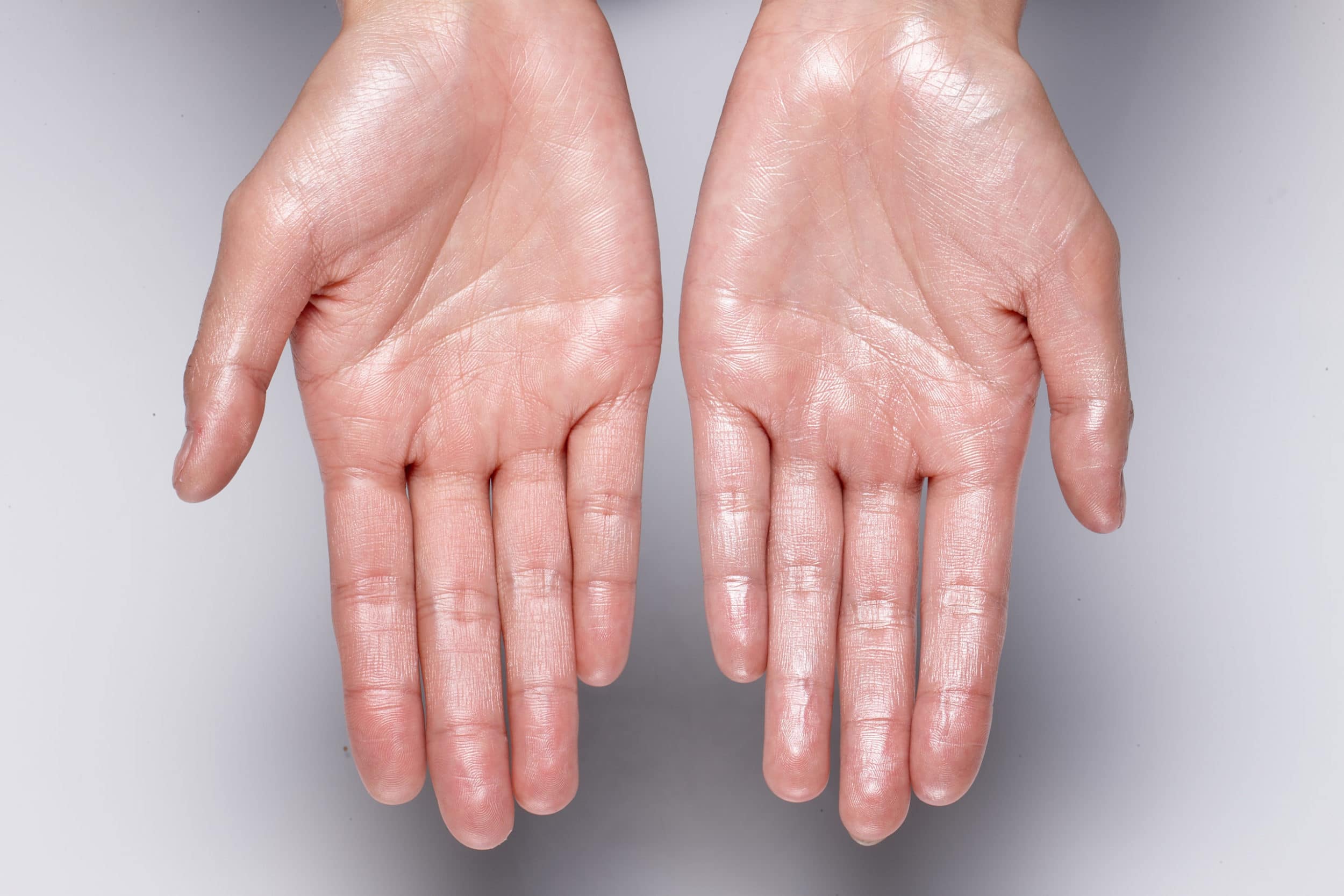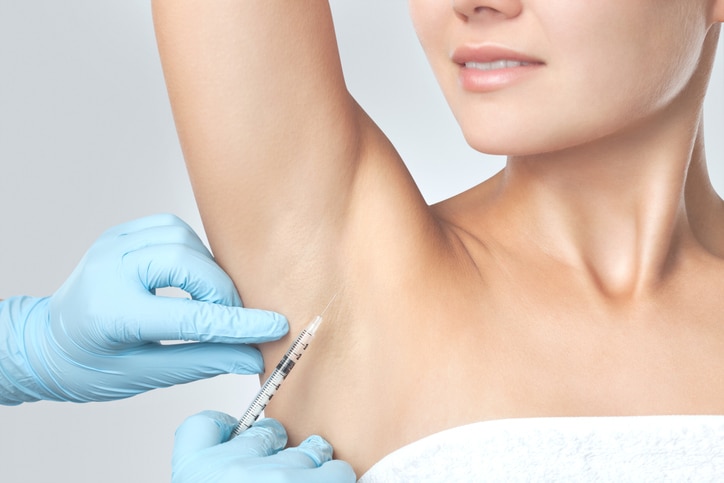Hyperhidrosis Clinical Trials & Treatment for Excessive Sweating in South Florida

What is Hyperhidrosis?
Hyperhidrosis is a condition that causes abnormal heavy sweating in certain regions of the body. Sweating is a natural bodily process that helps cool the body down to prevent it from overheating. For people with hyperhidrosis, overactive sweat glands cause the body to emit sweat even when cooling is not needed. Often, the sweating will occur in just one or two regions of the body, with other areas of the body remaining unaffected. Common areas of excessive sweating include the underarms, the feet, palms of the hands, the face, and the top of the head.
There are two types of hyperhidrosis: primary focal hyperhidrosis and secondary generalized hyperhidrosis. Primary focal hyperhidrosis typically starts during childhood or teen years and is not the result of underlying conditions or treatment side effects. Secondary generalized hyperhidrosis occurs when there is an underlying medical condition, such as diabetes, menopause, or an infection.
If you are experiencing heavy sweating that is interfering with your daily routines, medication, treatment, and clinical trial options are available to help reduce or stop excessive sweating.
What causes Heavy or Excessive Sweating?
Causes of hyperhidrosis may vary from patient to patient. Primary focal hyperhidrosis is generally caused by genetics, and most patients with primary hyperhidrosis have a close family member who has the condition. Secondary generalized hyperhidrosis is caused by medication side effects or underlying medical conditions, such as:
- Diabetes
- Anxiety
- Menopause
- Certain cancer types
- Disorders of the nervous system
- Low blood sugar
- Certain thyroid conditions
- Heart attack
- Certain infections
For some patients, the cause of hyperhidrosis may be unknown.
What Are the Symptoms of Hyperhidrosis?
Depending on the type of hyperhidrosis that you have, symptoms of excessive sweating may vary.
In general, symptoms of Hyperhidrosis may include:
- Profuse sweating from areas of the body during low-level activity or when at rest
- Heavy sweating that impedes daily tasks e.g., walking, maintaining a steady grip or hold, engaging in group gatherings
- Peeling, whitening, and softening of the skin in certain regions
- Skin infections e.g., athlete’s foot, jock itch

Symptoms of Primary Focal Hyperhidrosis may include heavy sweating that:
- Occurs in one or a few localized areas of the body
- Occurs on both the left and right side of the body
- Occurs shortly after waking up from bed
- Occurs at least once a week
- Is persistent for six or more months
Symptoms of Secondary Generalized Hyperhidrosis may include heavy sweating that:
- Occurs during sleep
- Occurs throughout multiple regions of the body
- Occurs in larger or generalized areas of the body
If you believe you have hyperhidrosis, a consultation with your doctor or an experienced dermatologist can help confirm a diagnosis.
How Is Hyperhidrosis Diagnosed?
Hyperhidrosis can be diagnosed by a doctor or by an experienced dermatologist who can review your symptoms and perform a physical exam to assess areas of your body that experience excessive perspiration. To determine if your hyperhidrosis is the result of an underlying medical condition, your doctor may need to obtain blood, urine, or other samples for laboratory testing. Sweat tests may also be recommended so that your doctor can assess the degree of sweating and which areas of the body are being affected.
What Are the Treatment Options for Hyperhidrosis?
Depending on the type and severity of hyperhidrosis, treatment will vary. If the excess sweating is due to another medical condition, your doctor may first try to treat that condition. If there is no underlying condition causing the heavy sweating, your doctor may recommend a variety of treatment options, either taken in combination or alone, to help alleviate your symptoms. Treatment options for hyperhidrosis may include:
- Prescription deodorants
- Prescription creams
- Nerve-blocking medications
- Antidepressants
- Botox injections

If the above treatment options are unsuccessful, your doctor may recommend surgery or other procedures, such as microwave therapy, sweat gland removal, or nerve surgery. In addition, clinical trials may be another option to consider if other treatment options fail to produce results.
Schedule a Consultation!
If you have been unsuccessful in finding the right treatment option for your hyperhidrosis sign up for a future clinical trial today. With over 25 years of experience in the execution of dermatological clinical trials, our team is highly trained and committed to ensuring that all clinical guidelines are met and that the rights of every patient are always protected. Call 561-948-3116 or fill out the form on this page to learn more about our clinical trial options.
